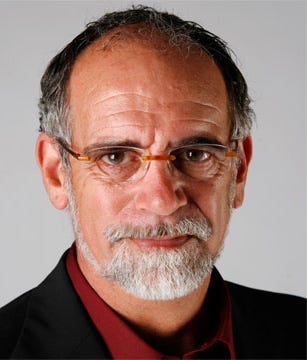Why Healthcare Needs to Be Destroyed to Be Saved
December 3, 2015
A medical futurist called for seismic shifts in healthcare to make it more efficient, transparent, and customer friendly, arguing that technologists should play a leading role in driving that change.
Brian Buntz
 So you want a healthcare revolution? That was essentially a question posed by a recent keynote from Joe Flower, a healthcare futurist and author, who essentially recommended a 'blow up, rebuild' approach for healthcare on Thursday at BIOMEDevice San Jose.
So you want a healthcare revolution? That was essentially a question posed by a recent keynote from Joe Flower, a healthcare futurist and author, who essentially recommended a 'blow up, rebuild' approach for healthcare on Thursday at BIOMEDevice San Jose.
"We could do healthcare for half the cost of what we do now with better outcomes," Flower said.
In the United States, about one third of what we spend is waste, Flower noted. "That is $900 billion dollars per year. The cost of wasted healthcare in the United States is 50% more than our roughly $600 billion in annual military spending."
Flower, who has a new book titled "How to Get What We Pay For," said that redefining what value means in healthcare could send a cascade of changes rippling throughout the field. "When you redefine what value means in an industry, you redefine everything about it--the way it is produced, paid for, how people interact with it, and what the information flow is," he said. "The health outcomes that matter to the patient are often different than the outcomes that matter to clinicians," he added. "But value in healthcare should be defined as: 'health outcomes that matter to the patient divided by cost."
At present, it is difficult to arrive at such calculations because of the lack of transparency. That is changing, however. "If your organization impedes the flow of information related to cost and quality, I feel for you because the market is going to find that out, and it is not going to be pretty," Flower said. Traditionally though, a lot of healthcare is like Hotel California, Flower quipped. "You can start working with a vendor, but you can't leave because they own all of the data."
Making healthcare more efficient will also require the novel use of sensors and mobile monitoring technology and a fundamental shift in how information is shared throughout the healthcare ecosystem. "There is huge potential for the mobile tech universe in healthcare: 24/7 sensors embedded in people's lives--whatever is needed and whatever works," he said. Flower called for a more integrated healthcare system and transparent information systems to help drive accountability and efficiency.
Healthcare is the only industry that doesn't have a transparent information system. And the lack of such a transparent system doesn't just drive inefficiency--it can kill people, according to Flower.
"I'm a Kaiser patient. They have one of the best information systems in healthcare right now, and it is not transparent to anyone outside their system," Flower said. "Before Kaiser went to its new system, they had 35 different computer systems that didn't talk to each other."
Further, some of the healthcare technologies now generating hype have little potential to help improve our healthcare system as a whole. "If you want to make a stupid investment, invest in Fitbit wannabes--things that don't interact with the healthcare system as a whole," Flower said. "But if you want to connect to the bigger market, you have to understand how that huge system is changing and how we in the tech and mobile industry can facilitate that change towards something that is actually better, faster, and cheaper."
Flower called for technologists to take on the challenge of actively understanding where the healthcare landscape is shifting in the next three to five years and beyond. Flower acknowledged that difficulty in doing so. "Healthcare--it's not rocket science. It is much more complex than rocket science."
Healthcare technologists should actively work to build transparent systems that will help push U.S. healthcare towards greater efficiency in the 21st century. "Our national healthcare infrastructure? We don't have one. We need to build it," he said.
Brian Buntz is the editor-in-chief of Qmed. Follow him on Twitter at @brian_buntz.
Like what you're reading? Subscribe to our daily e-newsletter.
About the Author(s)
You May Also Like


